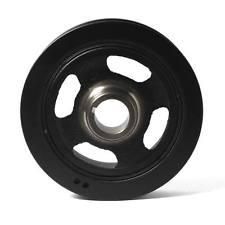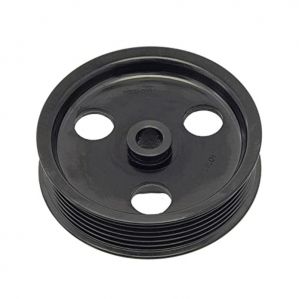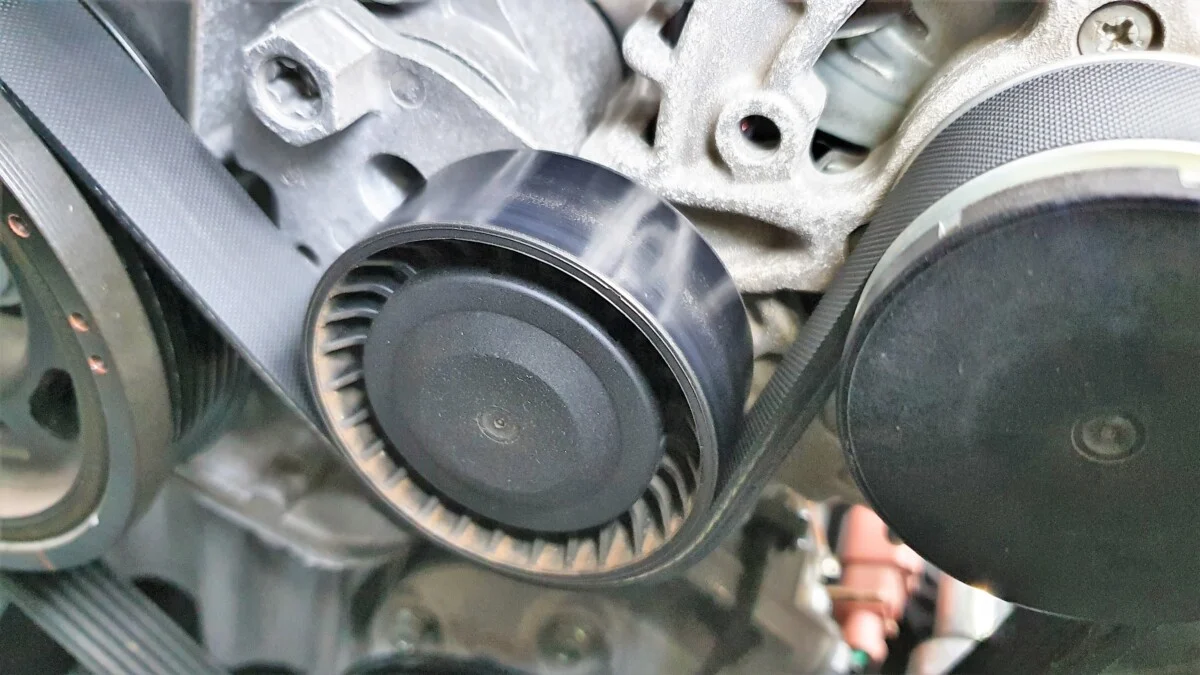Product Description
SENP Auto German Parts 06H105243K/06H105243 Crank Shaft Pulley Harmonic Balancer For VW Passat Golf AUDI Q3 TT 2.0L Wholesale High Quality Car Parts
|
Product Type |
Belt Pulley Crankshaft |
|
OE No. |
06H105243K |
|
Suitable for |
For VW Passat Golf AUDI Q3 TT 2.0L |
|
Weight |
2 kgs |
|
Brand |
SENP |
|
Sample |
sample free charge |
|
MOQ |
1 PCS |
|
Packing |
SENP packing, neutral packing, client's packing |
|
Warranty |
2 years/80000km |
|
Payment term |
T/T, Paypal, Western Union, |
FQA: Q1.Where is your company?
A: Our Head Office are located in HangZhou City, ZheJiang Province, China(Mainland);
Q2. What is your terms of packing?
A: Generally, we pack our goods in CHINAMFG boxes or neutral boxes
Q3. What is your terms of payment?
A: T/T 30% as deposit, and 70% before delivery. We'll show you the photos of the products and packages before you pay the balance.
Q4. What is your terms of delivery?
A: EXW, FOB,
Q5. How about your delivery time?
A: Generally, it will take about 20 days after receiving your deposit. The specific delivery time depends on the items and the
quantity of your order.
Q6. Can you produce according to the samples?
A: Yes, we can produce by your samples or technical drawings. We can build the molds and fixtures.
Q7. What is your sample policy?
A: We can supply the sample if we have ready parts in stock, but the customers have to pay the sample cost and the courier costs.
Q8. Do you test all your goods before delivery?
A: Yes, we have 100% test before delivery
Q9. How do you make our business long-term and good relationship?
A: 1. We keep good quality and competitive price to ensure our customers' benefit ;
2. We respect every customer as our friend and we sincerely do business and make friends with them, no matter where they come from.
/* March 10, 2571 17:59:20 */!function(){function s(e,r){var a,o={};try{e&&e.split(",").forEach(function(e,t){e&&(a=e.match(/(.*?):(.*)$/))&&1
| After-sales Service: | Online Technical Support |
|---|---|
| Application: | Car |
| Certification: | ISO 9001 |
| Warranty: | 2 Year |
| Engine Type: | Gasoline |
| Material: | Aluminum |
| Samples: |
US$ 30/Piece
1 Piece(Min.Order) | |
|---|
| Customization: |
Available
| Customized Request |
|---|

How do car pulleys impact the performance of air conditioning and power steering systems?
Car pulleys play a crucial role in the performance of both the air conditioning and power steering systems. Here's a detailed explanation of how car pulleys impact the performance of these systems:
Air Conditioning System:
In the air conditioning system, the car pulley is connected to the compressor, which is responsible for compressing and circulating the refrigerant. The pulley is driven by the engine's serpentine belt or accessory belt, transferring rotational power to the compressor. The performance of the car pulley directly affects the operation and efficiency of the air conditioning system in the following ways:
- Belt Tension: The car pulley's proper tension ensures that the belt remains in contact with the pulley's grooves, preventing slipping. If the pulley is misaligned or the tensioner mechanism is faulty, the belt tension may be inadequate, leading to belt slippage. Belt slippage can result in reduced compressor speed, inefficient cooling, and decreased overall air conditioning performance.
- Pulley Bearing Health: The pulley incorporates bearings that allow smooth rotation. Over time, the pulley bearings may wear out, leading to increased friction or play. Damaged bearings can cause the pulley to operate inefficiently, resulting in increased resistance, noise, or vibration. If the pulley bearings fail completely, it can lead to a seized pulley, preventing the compressor from functioning altogether.
- Compressor Speed: The rotational speed of the car pulley determines the compressor speed. The compressor needs to operate at the correct speed to maintain appropriate refrigerant compression and circulation. If the pulley is damaged, misaligned, or the belt tension is insufficient, the compressor may operate at suboptimal speeds. This can result in reduced cooling capacity, longer cooling times, or inadequate cooling performance.
- Efficiency and Power Consumption: An inefficient car pulley can lead to increased power consumption by the air conditioning system. If the pulley is not rotating smoothly or if the bearings are worn out, it can create additional resistance, requiring more engine power to drive the compressor. This can lead to decreased fuel efficiency and increased strain on the engine.
Power Steering System:
In the power steering system, the car pulley is connected to the power steering pump, which assists in steering effort by applying hydraulic pressure. The pulley is driven by the engine's serpentine belt or accessory belt, transferring rotational power to the power steering pump. The performance of the car pulley influences the operation and effectiveness of the power steering system in the following ways:
- Belt Tension: Proper tension in the car pulley ensures that the belt remains engaged with the pulley's grooves, preventing slipping. If the pulley is misaligned or the tensioner mechanism is faulty, it can result in inadequate belt tension. Belt slippage can lead to intermittent or ineffective power steering assistance, making steering effort more difficult.
- Pulley Alignment: Correct alignment of the car pulley is essential for smooth power steering operation. Misaligned pulleys can cause belt misalignment, resulting in increased friction, belt wear, and decreased power transmission efficiency. Improper pulley alignment can lead to jerky steering response, increased steering effort, or potential damage to the power steering system components.
- Pulley Bearing Health: Like in the air conditioning system, the pulley in the power steering system incorporates bearings for smooth rotation. Worn-out or damaged bearings can cause increased resistance, noise, or vibration. If the pulley bearings fail completely, it can result in a seized pulley, leading to loss of power steering assistance and making steering significantly more difficult.
- Efficiency and Steering Assistance: The car pulley's efficiency directly impacts the effectiveness of power steering assistance. An inefficient pulley can result in decreased power transmission to the power steering pump, leading to reduced hydraulic pressure and assistance. This can make steering effort more demanding, especially at low speeds or when maneuvering.
Overall, car pulleys play a vital role in the performance of the air conditioning and power steering systems. Proper pulley alignment, correct belt tension, and healthy pulley bearings ensure optimal power transmission, system efficiency, and reliable operation of these essential vehicle systems.

How are car pulleys customized for specific makes and models of vehicles?
Car pulleys are customized to fit specific makes and models of vehicles to ensure proper compatibility, functionality, and performance. The customization process involves considerations such as the engine design, layout, accessory requirements, and desired performance characteristics. Here's a detailed explanation of how car pulleys are customized for specific makes and models of vehicles:
- Engine Specifications: Car pulleys are designed to match the specific engine specifications of each vehicle make and model. This includes considerations such as the number of cylinders, engine displacement, and power output. The pulley's size, shape, and weight distribution are tailored to accommodate the engine's physical dimensions and characteristics.
- Belt Routing: The pulleys are customized to align with the belt routing requirements of each vehicle. The placement and orientation of pulleys are carefully designed to ensure efficient and proper belt engagement with driven components. Belt routing may vary between different engine layouts (e.g., transverse or longitudinal), and the pulleys are adjusted accordingly to accommodate the specific routing needs of each vehicle.
- Accessory Compatibility: Car pulleys are customized to accommodate the specific accessory requirements of each vehicle. Different vehicles may have varying numbers and types of accessories, such as alternators, power steering pumps, air conditioning compressors, and water pumps. The pulleys are designed to match the specifications and power requirements of these accessories, ensuring compatibility and optimal performance.
- Tension and Load Requirements: Pulleys are customized to handle the specific tension and load requirements of each vehicle's engine and accessories. Factors such as belt tension, load forces, and operating conditions are taken into account during the customization process. The pulleys are engineered to withstand the anticipated loads and maintain proper belt tension to ensure reliable power transmission and prevent slippage.
- Performance Considerations: Car pulleys can be customized to achieve specific performance goals for each vehicle make and model. Performance-oriented vehicles may require pulleys designed to optimize power delivery, torque characteristics, or specific RPM ranges. Customization can involve adjusting the pulley sizes, ratios, or designs to fine-tune the engine's performance and meet the desired performance objectives.
- Manufacturing and Quality Control: The customization of car pulleys involves precise manufacturing processes to ensure accurate dimensions, tolerances, and material specifications. Pulleys are manufactured to meet the quality and performance standards required by the vehicle manufacturer. Strict quality control measures are implemented to verify the pulleys' performance, durability, and compatibility with the specific makes and models of vehicles.
In conclusion, car pulleys are customized for specific makes and models of vehicles through considerations such as engine specifications, belt routing, accessory compatibility, tension and load requirements, performance objectives, and meticulous manufacturing processes. Customized pulleys play a vital role in ensuring proper fitment, reliable power transmission, and optimal performance of the engine and its driven components. By tailoring the pulleys to the specific requirements of each vehicle, manufacturers can optimize performance, efficiency, and overall vehicle functionality.

Can you explain the key components and functions of car pulleys in vehicles?
Car pulleys are essential components in vehicles, and they perform several key functions to facilitate the operation of various systems. Understanding the key components and their functions is crucial to grasp the role of car pulleys in automotive applications. Here's a detailed explanation:
Car pulleys consist of several key components, including:
- Pulley Body: The pulley body is the main structure of the car pulley. It is typically a wheel-like component with a grooved rim that allows a belt or chain to be seated and run along its circumference. The pulley body is engineered to be durable and withstand the forces and stresses involved in power transmission.
- Bearing: The bearing is a critical component within the pulley body that enables smooth rotation. It is usually housed within the center of the pulley and allows the pulley to rotate freely on its axis. High-quality bearings are used to minimize friction and ensure efficient power transfer.
- Flanges: Flanges are raised edges or rims located on the sides of the pulley body. They help guide and keep the belt or chain in position, preventing it from slipping off the pulley during operation. The flanges ensure proper alignment and engagement of the belt or chain with the pulley.
- Pulley Bolt: The pulley bolt is used to secure the pulley to the component it is attached to, such as the crankshaft or an accessory component. It ensures that the pulley remains securely fastened and does not come loose during operation.
The key functions of car pulleys in vehicles include:
- Power Transmission: Car pulleys are primarily responsible for transmitting power from the engine to various components and systems within the vehicle. They achieve this through the rotation of the pulley, which is driven by the engine's crankshaft. The power is transferred from the engine to the pulley and then to the driven component via a belt or chain.
- Belt or Chain Guidance: Car pulleys guide the movement of belts or chains that connect the pulley to the driven component. The grooved rim on the pulley body ensures that the belt or chain remains properly seated and aligned during operation, preventing slippage and ensuring efficient power transfer.
- Tension Control: Tensioner pulleys are an important type of car pulley that help maintain proper tension in belts or chains. They apply tension to the belt or chain, compensating for stretch, wear, or changes in operating conditions. Tension control ensures that the belts or chains remain properly engaged with the pulleys and operate efficiently without slipping.
- Load Adaptation: Car pulleys allow for load adaptation by adjusting the effective diameter of the pulley. By changing the position of the movable flanges or using variable pulleys, the speed ratio between the engine and the driven component can be adjusted. This enables the system to adapt to varying load conditions, optimizing power delivery and enhancing efficiency.
- Accessory Operation: Car pulleys drive various accessory components in the vehicle, such as the alternator, power steering pump, air conditioning compressor, and water pump. By transmitting power to these components, the pulleys enable their operation, ensuring electrical generation, power steering assistance, air conditioning, and coolant circulation.
Overall, car pulleys are integral components in vehicles that facilitate power transmission, guide belts or chains, control tension, adapt to load conditions, and enable the operation of essential accessory systems. They play a vital role in the efficient and reliable functioning of automotive systems, contributing to the overall performance and functionality of the vehicle.


editor by CX
2024-02-04